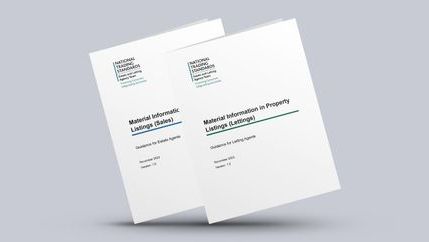
Trusts can be used for wholly legitimate reasons, but they can also be created with complicated structures to obscure the ownership of assets and make it easier for corrupt individuals to operate.
Allowing trust information to be publicly available by default except for protected information would be particularly beneficial when identifying the beneficial owners of property if the property agent is working with an individual who is purchasing property on behalf of the trust.
Privacy concerns can be addressed by agent regulation
Property agents play a key role in facilitating the sale of land and enabling freeholders and landlords to rent out their leases for both residential and commercial purposes.
While we recognise privacy concerns, one effective way that the UK Government can help to prevent misuse of increased transparency is to introduce mandatory regulation of property agents and establish a statutory Code of Practice for property agents working in the sector.
Supporting agents’ legal duties
Including property agents on the legitimate interest list of professionals who require access to land ownership information is paramount which would make it easier and more efficient for property agents to carry out anti-money laundering (AML) risk assessments or to contact anyone associated with the trust as part of a sale.
More direct information about the ownership and control of land would help address several issues, including
- Identifying liable landlords for remediation works in high-risk buildings
- Contacting relevant freeholders for lease extensions and changes
- Ensuring agents can identify owners of derelict or underused shops and other commercial premises
- Improving the effectiveness of AML processes
Enabling best practices on Material Information
Under the Consumer Protection from Unfair Trading Regulations 2008 property agents are legally required to provide Material Information when working with consumers and advertising property for sale and let. This includes requirements to specify if there are additional rights of access to land or restrictions on the property. Having greater access to the identity of the owner of the property and the surrounding land, especially if the property is a leasehold, will make this information easier to obtain.
Additionally, it is best industry practice for agents to identify potential disputes with the surrounding land and the property as early as possible during the process so that buyers are aware. The impact of increased transparency means that these checks can be made more quickly, preventing lengthy delays and potential fall-throughs.
Better risk management for high-rise buildings
There are also clear benefits for property agents who are Principal Accountable Persons in high-rise buildings with duties under the Building Safety Act 2022.
When registering a building that is owned by a trust, the individual with overall responsibility or control for the building will be required. This may not be the same as the individual who has instructed the agent to manage the building. This will enable the agent to provide the name of the owner to the Regulator, as well as establish a full history of the building components and materials, which is required when assessing building risks.
Property agents may also need access to previous documents relating to works conducted on the building or the contact details of the principal contractor in charge of the works. This will ensure that the Principal Accountable Person has access to the full golden thread of information, enabling them to plan remediation works or better manage potential risks within the building.









